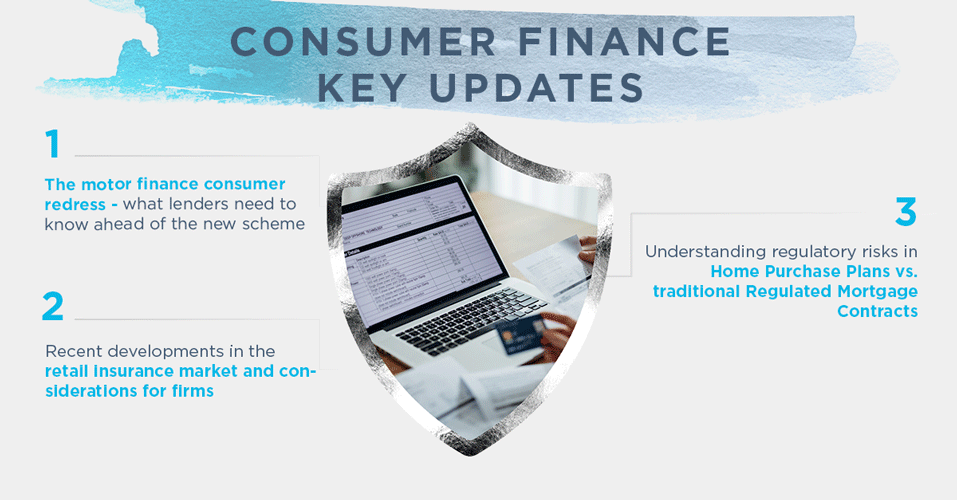As legal advisers, we have helped clients both with their implementations of the Duty and with incidents of potential non-compliance that have arisen since it came into force. In both situations we have dealt with matters where the extent of the Duty and its application were unclear and/or controversial, and therefore have direct experience of the issues that the FCA is now seeking to resolve.
Background
In her Mansion House speech in July 2025, the Chancellor stated that, as part of a package of reforms to enable ‘regulation for growth’, she had ‘tasked the FCA with assessing the impact of the Consumer Duty and whether it unduly affects wholesale activity’. (Our previous ‘AG Insights’ article on the Mansion House speech can be found here). There followed over the summer of 2025 a period within which the FCA engaged with firms, and on 29 September 2025, the FCA wrote back to the Chancellor, recording in summary the results of that engagement and setting out an action plan for reform.
The concerns that firms expressed to the FCA
In its letter of 29 September 2025, the FCA reported, in short, that firms had raised a series of concerns with it including:
- a lack of clarity about the role of the Consumer Duty in some business-to-business activities, particularly where services reach customers outside the UK and where they are subject to overseas regulation as well;
- a need for greater certainty over how the Consumer Duty applies across different roles in the distribution chain, for example over the sharing of information and co-manufacture of products;
- how firms can evidence that their activities have no material impact on retail consumers;
- he cost and complexity of ‘defensive implementations’ of the Duty, where firms have sought to implement the Duty despite doubts over whether it applies at all, due to concerns about ‘getting it wrong’.
The FCA’s action plan in summary
In its letter to the Chancellor, the FCA set out a four-point action plan towards amending the Duty in respect of wholesale activity. In summary, it is the FCA’s intention to:
- provide more clarity on its supervisory approach towards wholesale firms co-manufacturing financial products for retail customers;
- consult on plans to amend the client categorisation framework better to recognise that ‘there is a subset of investors who have the knowledge, experience, sophistication or resources to mean that they do not need retail protections’. The FCA notes it is considering coupling a revised approach to client classification with ‘a new test at a high threshold of assets, to draw a brighter line for firms’;
- consult on changes to rules on the application and requirements of the Duty, including through distribution chains, to make it clearer for firms where the Duty applies and ‘how we can draw a clearer line when it doesn’t’. The FCA notes it is considering whether ‘to draw a clearer line on business-to-business activities which should not be captured’;
- a proposal to remove business with non-UK customers from the scope of the Duty, to reduce the issues associated with reconciling different duties from different jurisdictions.
The FCA takes the view, however, that there have been cases of significant consumer harm where firms higher in a distribution chain did not adequately consider end consumers, and it is clear that it wishes any reforms to enable it to continue to hold such firms accountable where they have played a role in significant harm to consumers.
Industry work in this area
On 9 September 2025, UK Finance and AFME published a joint submission to the FCA, making a strong case for reform, which we fully support. In particular, as a constructive response for the short term, they called for:
- a specific exclusion for the manufacture of retail structured products from the Duty, on the basis that wholesale firms are already subject to sufficient pre-existing regulation; and
- to provide a clear exclusion for services provided by wholesale banks on a business to business basis.
Both of these approaches are well justified and as advisers we would welcome the clarity and regulatory certainty that implementing them would bring, as well as the other commentary provided in the submission.
Some further thoughts from AG
We agree with the FCA’s action plan (particularly with the proposal to remove clearly international business with consumers from the scope of the Duty) and await its further work in this area with interest.
In addition, however, to the reforms for which the trade associations mentioned above have argued, we believe that in the longer term, in order to give effect to its action plan, fundamental reform of some of the FCA’s rules is needed. We would suggest the FCA should give consideration to three areas in particular.
- Reform of the definition of ‘retail markets business’. This definition in PRIN 2A and the FCA Handbook is fundamental to the scope of the Consumer Duty and as advisers it is an area on which clients have sought, and continue to seek, assistance. We believe that in order to prevent the Consumer Duty having negative effects on wholesale markets and the UK’s competitive position of the kind the Chancellor has identified, even with an exclusion for services provided by wholesale banks on a business to business basis, a fundamental review of this definition is required. We believe that structuring the definition differently would assist. We believe some of the uncertainty in issue is created by the current approach in which the Duty has wide application, followed by a series of exclusions. This could be replaced with a narrower and more focused test, based on a much closer connection between the firm’s activities and retail customers, for example the creation of products for, and delivery of services to, them. A more clearly targeted definition as to what activity is in scope at the outset would, in our view, help to make it clearer that distribution chains and activities that do not involve products or services intended for consumers are not covered by the Duty.
- Moving away from “material influence over retail customer outcomes” as a means of defining the scope of the Duty. In short, the FCA’s guidance in PRIN 2A.1.14 and 15 (as currently framed), gives the concept of ‘determining or having a material influence over retail customer outcomes’ a key role as to when the Duty will apply to firms in the wholesale market. The guidance also provides that when assessing the obligations of firms in a distribution chain, they “must be interpreted reasonably, in a manner that reflects the firm’s role in that distribution chain and the degree to which it can determine or materially influence retail customer outcomes”. The use of open-textured concepts such as reasonableness and “material influence” to determine scope is, in our view, partly the source of the problem the FCA is now seeking to resolve. We believe it would be possible to draw brighter lines here and move away from ‘material effect’, particularly when coupled with the reform we propose above.
- Reform of the finalised guidance on the Duty (FG22-5). Aligned with the above, the FCA’s existing guidance would also need to be reformed, particularly at para 2.29 onwards. However we also support the view that this is an area where fundamental reform of rules is important; the issue of further guidance (particularly non-statutory guidance) on the existing rules would not be sufficient to remove the uncertainty.





